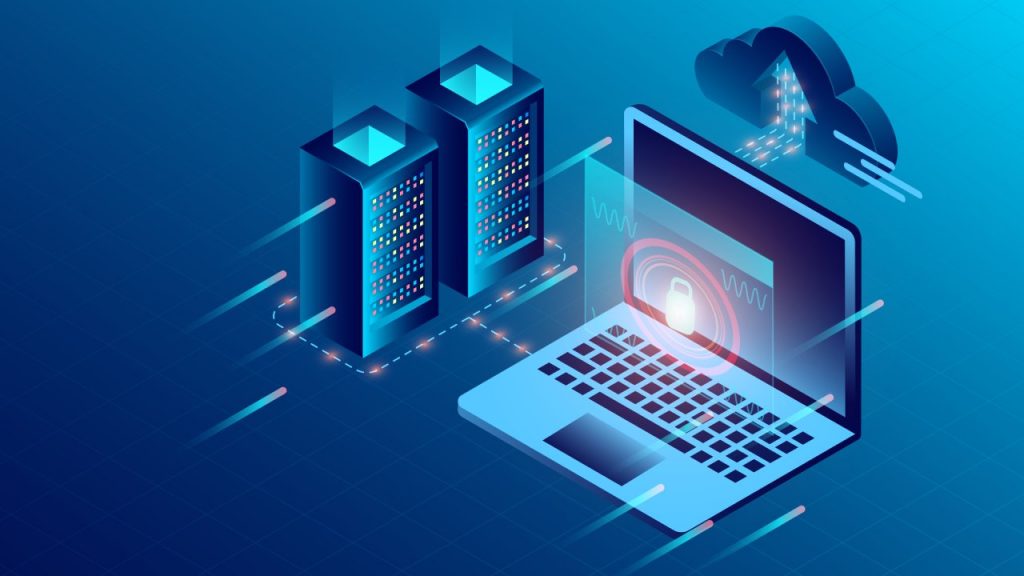Web scraping is an essential technique for collecting data from websites, enabling businesses, researchers, and developers to automate the extraction of valuable information. However, web scraping often presents challenges, particularly when websites impose restrictions to prevent large-scale data collection. One of the most common issues is encountering IP-based blocks that can disrupt your scraping efforts.
Proxies offer a solution to this problem. By using proxies, you can mask your real IP address, bypass geo-restrictions, prevent detection of your scraping activity, and ensure seamless data collection. Proxies help minimize the risk of being blocked, allowing you to scrape large amounts of data from multiple sources without running into issues.
In this article, we’ll explore why proxies are important for web scraping, the different types available, and practical strategies to ensure your scraping activities are efficient and secure
Why Proxies are Essential for Web Scraping
Web scraping can be an incredibly powerful tool for gathering data, but many websites are designed to prevent or limit automated data extraction. Proxies play a crucial role in overcoming these challenges and ensuring that your web scraping efforts remain efficient and effective. Here’s why proxies are essential for web scraping:
Bypassing IP Bans and Restrictions
Many websites limit or block access based on the IP address making the request. If too many requests come from a single IP address within a short period, the website may flag this activity as suspicious or malicious, resulting in an IP ban. This can quickly halt your scraping project.
Proxies allow you to use different IP addresses for each request, which helps you avoid triggering these bans. By rotating proxies, you can distribute your requests across a wide range of IPs, mimicking legitimate traffic patterns and reducing the likelihood of being blocked.
Avoiding Rate Limiting and CAPTCHAs
Rate limiting is another technique websites use to control the amount of data a user can request in a given timeframe. When the rate limit is exceeded, the website may delay further requests or block them altogether.
Proxies help avoid rate limiting by enabling you to rotate IPs and manage the flow of requests more effectively. Additionally, many websites use CAPTCHAs to verify that the traffic is human and not a bot. When scraping at scale, CAPTCHAs can quickly become a roadblock.
By using proxies in combination with CAPTCHA-solving techniques, you can bypass or avoid these restrictions, ensuring that your scraping operation continues smoothly without manual intervention.
Maintaining Anonymity and Security
Using proxies enhances your anonymity when scraping, which is particularly important if you’re working with sensitive or competitive data. Without proxies, your IP address can be traced back to you, making your scraping activity visible to websites and potentially subject to legal actions or blacklisting.
Proxies allow you to hide your real IP address, reducing the chances of detection. This is especially critical for large-scale scraping projects or when scraping websites with strict anti-scraping policies. By maintaining anonymity, proxies also help secure your data and protect you from unwanted attention or exposure.
Types of Proxies Used in Web Scraping
When it comes to web scraping, choosing the right type of proxy is essential to achieving your goals. Different proxies offer unique features, advantages, and limitations. Understanding these types will help you determine the best fit for your specific scraping needs.
Residential Proxies
Definition: Residential proxies are IP addresses assigned to real devices by Internet Service Providers (ISPs) for residential users. These proxies are routed through regular consumer networks, making them appear as legitimate user traffic.
Advantages:
- High Anonymity: Since residential IPs are associated with real users, websites are less likely to detect scraping activity.
- Less Likely to Be Blocked: Residential proxies have a lower chance of being flagged or banned, as they don’t exhibit the patterns of typical scraping tools.
- Access to Geo-Restricted Content: Residential proxies can be used to access content that is geo-restricted, as they are typically available in multiple locations.
Ideal Use Cases:
- Large-scale scraping of websites with aggressive anti-scraping measures.
- Bypassing geo-restrictions for content available only in specific regions.
- Scraping marketplaces, social media platforms, or travel websites where residential IPs are less likely to be blocked.
Datacenter Proxies
Definition: Datacenter proxies are IP addresses provided by data centers, not associated with real residential users. These proxies are typically faster and less expensive than residential proxies but are easier for websites to detect.
Advantages:
- Cost-Effective: Datacenter proxies are cheaper than residential proxies, making them ideal for projects with large-scale scraping needs on a budget.
- High Speed: Since they are hosted in data centers, these proxies tend to offer faster connection speeds compared to residential proxies.
Drawbacks:
- Easier to Detect: Since datacenter proxies don’t come from real users, websites can easily detect them based on IP patterns and server location.
- Higher Risk of Blocks: Websites with strict anti-scraping measures may block datacenter proxies more frequently, especially for high-volume scraping.
Ideal Use Cases:
- Scraping websites with less aggressive anti-scraping measures.
- Projects that require scraping large amounts of data quickly and cost-effectively.
- Non-sensitive data scraping tasks where speed is more important than avoiding detection.
Rotating Proxies
Definition: Rotating proxies are proxies that automatically change your IP address at regular intervals or after each request. These proxies can be either residential or datacenter, but they rotate constantly to avoid detection.
How They Work: Rotating proxies use a pool of IP addresses that are continuously cycled. Each time a new request is made, a different IP address is assigned, making it difficult for websites to track and block the scraper.
Why They Are Useful for Scraping:
- Prevent IP Blocking: Rotating proxies help prevent IP bans by spreading requests across multiple IPs, simulating natural user traffic patterns.
- Avoid CAPTCHAs and Rate Limiting: By rotating IPs, rotating proxies reduce the likelihood of encountering CAPTCHAs and rate limits imposed by websites.
- Enhanced Scraping Efficiency: Rotating proxies ensure uninterrupted scraping by constantly providing fresh IPs to keep scraping tasks running smoothly.
Ideal Use Cases:
- Large-scale scraping projects requiring high volume, where IP bans and blocks would hinder progress.
- Scraping websites with aggressive anti-bot protections that detect consistent IP usage.
- Tasks where scraping speed and avoiding detection are critical.
Dedicated vs Shared Proxies

Dedicated Proxies
Definition: Dedicated proxies are proxies assigned exclusively to one user or project. The user has full control over the IP address, and it is not shared with anyone else.
Pros:
- Higher Reliability: Since no one else uses the proxy, the user can rely on consistent performance and reduced chances of being blocked.
- Increased Anonymity: With dedicated proxies, there is less risk of encountering problems caused by the activity of other users on the same proxy.
Cons:
- Higher Cost: Dedicated proxies are more expensive than shared proxies, which may be a barrier for users with budget constraints.
Ideal Use Cases:
- Projects that require high levels of anonymity and reliability.
- Businesses or researchers scraping sensitive or large-scale data where uninterrupted performance is crucial.
Shared Proxies
Definition: Shared proxies are used by multiple users simultaneously. The same IP address is shared among various users, which can impact the proxy’s performance and reliability.
Pros:
- Lower Cost: Since shared proxies are used by multiple users, they are much cheaper than dedicated proxies.
- Suitable for Smaller Projects: Ideal for projects with less intense scraping needs where the cost of dedicated proxies is not justified.
Cons:
- Reduced Performance: Shared proxies may experience slower speeds and higher risk of detection due to the activity of other users.
- Increased Risk of Blocking: If another user on the same proxy gets flagged or blocked, it can affect the performance of all users sharing the proxy.
Ideal Use Cases:
- Small-scale scraping projects with a lower budget.
- Tasks where performance is not as critical, and the potential risk of IP bans is manageable.
Setting Up Proxies for Web Scraping
Setting up proxies for web scraping is crucial to ensure that your scraping activities run smoothly, securely, and without interruption. The process involves selecting a reliable proxy provider, configuring proxies with scraping tools, and applying effective proxy rotation strategies. Here’s a breakdown of how to set everything up:
Choosing the Right Proxy Provider
The first step in setting up proxies for web scraping is selecting the right proxy provider. A good proxy provider can make a significant difference in your scraping success. When choosing a provider, consider the following factors:
- Type of Proxies Offered: Ensure the provider offers the type of proxies that match your scraping needs (e.g., residential, datacenter, rotating proxies). For high-security or large-scale scraping, residential and rotating proxies may be more suitable.
- IP Pool Size: A larger IP pool allows for better rotation and minimizes the risk of IP bans. Look for providers that offer a broad range of IPs across different geographic locations to handle geo-restrictions effectively.
- Reliability and Speed: Choose a provider with high uptime and fast proxy speeds. Slow proxies can hinder scraping performance, while unreliable proxies can result in frequent disconnections or blocks.
- Security and Anonymity: Ensure the provider offers proxies that maintain anonymity and avoid exposing your real IP address. This is especially important if you’re scraping sensitive or high-value data.
- Support and Documentation: Select a provider with good customer support and comprehensive documentation. This can help you troubleshoot issues and ensure smooth proxy integration with your scraping setup.
Configuring Proxies with Scraping Tools
Once you have chosen a proxy provider, you need to configure proxies with your scraping tools. Here’s how you can do this with popular Python-based libraries:
- Python with requests/BeautifulSoup: To use proxies with the requests library in Python, you can pass the proxy configuration as part of the requests.get() method. Here’s an example:
import requests
proxies = {
'http': 'http://your_proxy_ip:port',
'https': 'https://your_proxy_ip:port',
}
response = requests.get('https://example.com', proxies=proxies)
print(response.text)
You can also use BeautifulSoup for parsing HTML content once the data is fetched using the requests library.
- Scrapy: Scrapy is a powerful web scraping framework for Python that allows easy integration with proxies. To configure proxies in Scrapy, you need to modify the settings in the settings.py file:
HTTP_PROXY = 'http://your_proxy_ip:port'
DOWNLOADER_MIDDLEWARES = {
'scrapy.downloadermiddlewares.httpproxy.HttpProxyMiddleware': 1,
}Scrapy also provides a mechanism for rotating proxies via the use of middlewares, which can be configured to change the proxy for each request automatically.
- Selenium: When using Selenium to scrape dynamic websites (JavaScript-heavy), you can configure proxies by setting up a browser profile or options for Chrome or Firefox. Here’s an example using Selenium with the Chrome WebDriver:
from selenium import webdriver
from selenium.webdriver.common.proxy import Proxy, ProxyType
proxy = Proxy()
proxy.proxy_type = ProxyType.MANUAL
proxy.http_proxy = "your_proxy_ip:port"
proxy.ssl_proxy = "your_proxy_ip:port"
capabilities = webdriver.DesiredCapabilities.CHROME
proxy.add_to_capabilities(capabilities)
driver = webdriver.Chrome(desired_capabilities=capabilities)
driver.get("https://example.com")This will configure the browser to route traffic through the specified proxy.
Proxy Rotation Strategies for Large-Scale Scraping
When scraping at scale, it’s crucial to implement proxy rotation strategies to avoid IP bans and ensure smooth scraping operations. Here are some effective strategies for rotating proxies:
Rotating Proxies After Each Request:
One common rotation strategy is to change the proxy IP after each request. This helps distribute the traffic evenly across multiple IP addresses, reducing the likelihood of being blocked. You can implement this using a proxy pool or by selecting a random proxy from a list of available proxies for each request.
In Python, you can implement this by maintaining a list of proxies and choosing a random proxy for each request:
import random
proxies = ['proxy1', 'proxy2', 'proxy3', 'proxy4']
def get_random_proxy():
return random.choice(proxies)
proxy = get_random_proxy()
response = requests.get('https://example.com', proxies={'http': proxy, 'https': proxy})Rotating Proxies Based on Time Intervals:
Another effective strategy is to rotate proxies after a set time interval, such as every minute or after a certain number of requests. This helps avoid triggering anti-scraping mechanisms that monitor activity patterns. Tools like Scrapy and Selenium allow you to control the frequency of proxy changes.
Using Proxy Rotation Services:
If you’re handling a large volume of requests, using a proxy rotation service can simplify the process. Many proxy providers offer automatic proxy rotation as part of their service, allowing you to focus on the scraping task itself. These services automatically rotate proxies from their pool, ensuring that your requests remain anonymous and undetected.
Session-Based Proxy Rotation:
If you need to maintain session consistency, such as when dealing with login or account-based data scraping, consider rotating proxies within a session. You can switch proxies every few requests or after each session to balance between maintaining session data and preventing blocks.
Common Mistakes to Avoid When Using Proxies
While proxies are essential for successful web scraping, improper use can lead to inefficiencies, blocked requests, or even legal issues. To ensure your scraping operations run smoothly, it’s crucial to avoid some common mistakes. Here are a few critical mistakes to watch out for:
Overloading a Single Proxy
One of the most common mistakes when using proxies is overloading a single proxy with too many requests. Proxies, especially datacenter ones, can handle only a limited number of requests before they get flagged or blocked by websites. Using the same proxy for a high volume of requests within a short period increases the likelihood of being detected as a bot.
How to Avoid It:
- Use a pool of proxies to distribute requests across multiple IPs.
- Rotate proxies regularly to balance the load and reduce the chance of detection.
- Implement proxy rotation strategies (e.g., rotating proxies after a set number of requests or time intervals) to maintain a smooth flow of data.
Using Free Proxies for Large-Scale Scraping
Free proxies are often tempting because of their low cost, but they are generally unsuitable for large-scale web scraping operations. While they may work for small or low-priority scraping tasks, using free proxies for more intensive scraping can lead to poor performance and issues with data extraction.
How to Avoid It:
- Invest in reliable paid proxy services that offer better security, performance, and scalability.
- Ensure the provider offers proxy rotation and access to a diverse pool of IPs to minimize detection risks.
- Choose reputable providers that prioritize security and offer encryption to protect your data.
Ignoring the Importance of Anonymity and Security
Another mistake is neglecting the importance of anonymity and security when using proxies. While proxies can help you mask your real IP address, failing to use them with proper security measures can expose your scraping activities to risks. Inadequate anonymity and weak security practices can compromise both the integrity of your scraping efforts and the safety of your data.
Why It’s a Problem:
- Exposure to Legal Risks: Without proper anonymity, websites can trace your scraping activities back to you. This can lead to legal consequences, especially if you are scraping sensitive or proprietary data.
- Data Breaches: Poor security practices can expose your proxy credentials and other sensitive information, putting your project and personal data at risk.
- IP Tracking: If your proxy setup is not configured to maintain anonymity, it can lead to your real IP address being exposed, making your scraping efforts more detectable.
How to Avoid It:
- Always use proxies that provide strong anonymity and avoid proxies that share your real IP information with websites.
- Enable encryption and secure connections when configuring proxies to prevent data interception.
- Ensure that you are complying with legal and ethical standards in your scraping activities to avoid potential legal issues.
Conclusion
Using proxies effectively is crucial for successful web scraping. By choosing the right proxies and configuring them properly, you can overcome many challenges such as IP blocking and rate limiting. Ensuring security and maintaining anonymity throughout the process further strengthens your scraping operations. With the right setup and strategy, proxies can significantly enhance the efficiency and scalability of your web scraping tasks.

